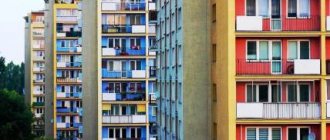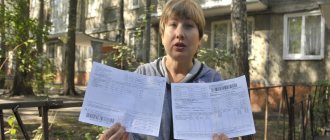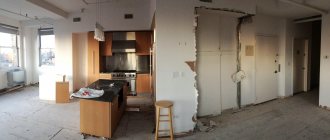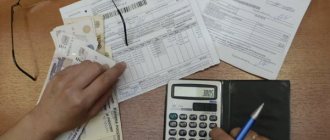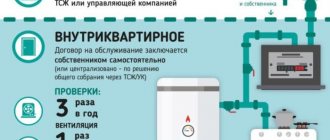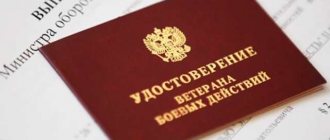Home/Utilities/Increase in housing and communal services tariffs from July 1, 2021
Payment for housing and communal services is a direct and immediate obligation of each owner, municipal tenant or tenant living in the dwelling under a lease agreement. From July 1, 2021, changes occurred in the regions of the Russian Federation that affected tariff rates for water, gas, and electricity. Why this happened, and how much more money will go from citizens to pay off utility bills after increasing housing and communal services tariffs - we will look at this in the article.
Who determines housing and communal services tariffs in 2021?
In 2021, as in previous annual periods, the following structures are responsible for determining prices for utility services:
Attention! If you have any questions, you can chat for free with a lawyer at the bottom of the screen or call Moscow; Saint Petersburg; Free call for all of Russia.
- the main government of the country;
- local municipalities.
Attention
The process of providing citizens with utility services (utilities) is directly influenced by RSO (organizations for supplying the population with resources in accordance with the General provisions of Government Decree No. 354 of 05/06/11, paragraph 2) and management companies (management companies). This is due to the fact that the cost of utilities consists of several elements - prices for resources, maintenance, and provision. The region where the owner lives also plays an important role.
What antimonopoly experts say
According to the Federal Antimonopoly Service of Russia, the increase in prices for housing and communal services from July 1, 2021 on average throughout Russia is no more than 4%. The general statistics for the growth of communal apartments since 07/01/2018 are as follows:
- the largest increase is planned for St. Petersburg and Yakutia - by 6%;
- the most gentle increase for North Ossetia and the Novosibirsk region is 3%;
- in Moscow, the maximum increase in housing and communal services tariffs can reach 5.5%.
According to the law, the maximum indexes for the growth of housing and communal services tariffs at the local level are set by the head of the region. That is, even in geographically close municipalities of the same constituent entity of the Russian Federation, utility tariffs may differ.
FAS Russia: indices (see below) do not limit the possible increase in tariffs for specific services, but the expected increase in the amount of payment for all housing and communal services in each month of the calendar year.
Also see “From May 26, a new form of payment for housing and communal services will be used: what has changed.”
The FAS recommends that citizens check the calculations for payment for housing and communal services in their payment invoice using a special calculator, and if discrepancies are identified, contact the housing inspectorate.
Normative base
The main documents regulating the cost of utilities and the degree of increase in housing and communal services tariffs are as follows:
- Government Decree No. 2353-r dated October 26, 2017 “On approval of indices of changes in the size of the payment made by owners for utilities” (on average for the constituent entities of the Russian Federation);
- Government Decree No. 354 dated May 6, 2011 “On the provision of utility services to owners and users of apartment premises...”;
- Housing Code of the Russian Federation (Articles 153-157);
- Government Decree No. 400 of April 30, 2014, regulating the procedures and standards for increasing utility tariffs.
How much will rents increase and what innovations await Russians in 2021?
How much exactly will the rent increase? Now this is known: the Government of the Russian Federation has approved the maximum tariff increase indices for 2020 (Order No. 2556-r dated October 29, 2021).
The increase, as usual, is planned unevenly: in some regions it is less, in others it is more. A high increase in tariffs awaits residents:
— Chechen Republic — 6.5
— Kabardino-Balkarian Republic — 5.4
— Republic of Dagestan — 5.2
— Republic of Ingushetia — 5.1
— Moscow — 5.0
— Omsk region — 5.0
— Republic of Buryatia — 5.0
— Jewish Autonomous Region — 4.9
— Novosibirsk region — 4.9
— Kemerovo region — Kuzbass — 4.9
— Irkutsk region — 4.8
— Tomsk region — 4.7
— Krasnoyarsk Territory — 4.6
The lowest tariff change index was approved for the Nenets Autonomous Okrug (2.4).
In most regions, the average increase in tariffs is allowed within the range of 3.6 - 4.0.
Well, now - about the good stuff. Based on the results of this year, a number of innovations can be identified that will limit the increase in rent and even, in certain cases, eliminate it altogether.
1. Going beyond limits is difficult.
Regions can even exceed these maximum tariff growth indices if they justify a good reason. However, this has become much more difficult since June: the Government has reduced the range of permissible grounds for exceeding the limits.
Thus, the need to equalize tariffs across municipal districts or bring tariffs to economically justified levels is no longer recognized as a valid reason for exceeding the indices.
And the decision to increase tariffs above the maximum values must necessarily be agreed upon with the Federal Antimonopoly Service (GD of the Russian Federation dated June 13, 2021 No. 756).
2. Pay the management company - only by decision of the qualified majority
New clarification from the Ministry of Construction: changes in housing maintenance fees (in favor of the management organization) must be approved by a qualified majority of owners: 50% + 1 vote.
Therefore, the fee increase proposed by the Criminal Code for the next year will be invalid if it does not receive the required number of votes in favor (Letter of the Ministry of Construction dated September 6, 2021 No. 32453-OG/04).
3. The absence of a meter is not always a reason to increase the fee
As you know, the absence of a water or electricity meter (if it is technically possible to install it) entails liability for the owner: the fee is charged to him at an increased rate, taking into account the penalty coefficient (1.5).
However, recently judicial practice has introduced a new basis for exempting tenants from fines:
- if the apartment is municipal (non-privatized), then the local administration (as a representative of the owner) is obliged to install meters in it.
Therefore, if there is no meter, all responsibility for this rests with the administration.
Residents should not be responsible for someone else’s fault and pay for water (or electricity) at an increased rate (RF Armed Forces, case 307-ES19-5911).
zen.yandex.ru
What housing and communal services tariffs have increased?
Annual changes in the tariff structure within the RSO occur in accordance with the basic parameters of the socio-economic orientation of the Russian Federation for a particular annual period. In accordance with the Housing Code of the Russian Federation (Article 154), in Russia it is customary to apply restrictions on the total payment for utility services, which includes the following costs:
- cold and hot water;
- gas;
- light.
IMPORTANT
Depending on the boundaries established at the regional level, local governments determine housing and communal services tariffs independently.
Thus, from July 1, 2021, the increase in prices for housing and communal services tariffs became as follows:
- electricity supply : growth is limited only by the level of inflation in the country (grid organizations will have to pay much less, unlike ordinary citizens), however, in 2021 we should expect another increase of 3.1-5.6% on average;
- sewerage and water supply - 3.8%, the increase in water costs will not stop there, there is a possibility that prices will continue to rise in 2021 (according to preliminary estimates - by 4.1% relative to the second half of 2021);
- gas - 3.4%, and in 2021 an increase of another 2.1% is planned (this is a planned price increase scheme), subsequently an annual increase in prices is expected by 1% for 3 years, but current circumstances will force the government to increase prices for gas at a higher rate than planned.
For your information,
the average rate of increase in prices for utilities, including water, gas, electricity in percentage terms is 4.4-4.9%.
How will tariffs for housing and communal services increase in 2021? Moscow, St. Petersburg and other Russian regions
27.10.2017
The government has approved the maximum indices for changes in utility fees in Russian regions for 2021. In Moscow, the increase in tariffs from July 1, 2021 will be 5.5%. In St. Petersburg, utility bills will increase by 6%.
As stated in the government order published on the legal information portal, in the first half of 2021, a zero increase in tariffs is envisaged for all Russian regions. The increase will take place from July 1, 2021
In the second half of 2021, the maximum growth, besides St. Petersburg, is expected in Yakutia (6%), Kemerovo region (5.9%), the lowest is in North Ossetia and Novosibirsk region (3%).
At the same time, Crimea and Sevastopol are missing from the list of regions. Changes in tariffs for housing and communal services in these regions will be approved by a separate decision.
Increase in tariffs for housing and communal services in Russian regions in 2018
| Region | % growth |
| Republic of Adygea | 3,4 |
| Altai Republic | 3,5 |
| Republic of Bashkortostan | 5,9 |
| The Republic of Buryatia | 3,5 |
| The Republic of Dagestan | 3,3 |
| The Republic of Ingushetia | 3,6 |
| Kabardino-Balkarian Republic | 3,3 |
| Republic of Kalmykia | 3,5 |
| Karachay-Cherkess Republic | 3,4 |
| Republic of Karelia | 3,7 |
| Komi Republic | 4 |
| Mari El Republic | 3,5 |
| The Republic of Mordovia | 3,9 |
| The Republic of Sakha (Yakutia) | 6 |
| Republic of North Ossetia-Alania | 3 |
| Republic of Tatarstan | 4,2 |
| Tyva Republic | 5 |
| Udmurt republic | 3,5 |
| The Republic of Khakassia | 5 |
| Chechen Republic | 3,4 |
| Chuvash Republic | 3,9 |
| Altai region | 4,5 |
| Transbaikal region | 4 |
| Kamchatka Krai | 5 |
| Krasnodar region | 4 |
| Krasnoyarsk region | 3,9 |
| Perm region | 4 |
| Primorsky Krai | 4,4 |
| Stavropol region | 3,5 |
| Khabarovsk region | 4 |
| Amur region | 3,8 |
| Arhangelsk region | 4,1 |
| Astrakhan region | 4,2 |
| Belgorod region | 4 |
| Bryansk region | 3,9 |
| Vladimir region | 4 |
| Volgograd region | 4 |
| Vologda Region | 4,3 |
| Voronezh region | 4 |
| Ivanovo region | 3,8 |
| Irkutsk region | 5 |
| Kaliningrad region | 3,4 |
| Kaluga region | 4 |
| Kemerovo region | 5,9 |
| Kirov region | 5,5 |
| Kostroma region | 3,7 |
| Kurgan region | 3,8 |
| Kursk region | 4,7 |
| Leningrad region | 3,5 |
| Lipetsk region | 4,2 |
| Magadan Region | 4,5 |
| Moscow region | 4 |
| Murmansk region | 3,4 |
| Nizhny Novgorod Region | 3,9 |
| Novgorod region | 5,5 |
| Novosibirsk region | 3 |
| Omsk region | 5 |
| Orenburg region | 4 |
| Oryol Region | 3,7 |
| Penza region | 3,9 |
| Pskov region | 3,3 |
| Rostov region | 3,5 |
| Ryazan Oblast | 3,9 |
| Samara Region | 4 |
| Saratov region | 3,5 |
| Sakhalin region | 3,4 |
| Sverdlovsk region | 4,5 |
| Smolensk region | 4,4 |
| Tambov Region | 4,7 |
| Tver region | 3,4 |
| Tomsk region | 5,2 |
| Tula region | 4,8 |
| Tyumen region | 4,5 |
| Ulyanovsk region | 3,6 |
| Chelyabinsk region | 3,8 |
| Yaroslavl region | 4 |
| Moscow city | 5,5 |
| City of Saint Petersburg | 6 |
| Jewish Autonomous Region | 4,8 |
| Nenets Autonomous Okrug | 3,9 |
| Khanty-Mansiysk Autonomous Okrug - Ugra | 4 |
| Chukotka Autonomous Okrug | 4 |
| Yamalo-Nenets Autonomous Okrug | 4 |
How have prices for housing and communal services increased since July 1, 2021?
The lowest threshold of the price increase index from July 1, 2021 is observed in North Ossetia, Novosibirsk and the region, as well as in the Republic of Dagestan and Kabardino-Balkaria. The highest growth rates appear in St. Petersburg (6%), Moscow (5.5%), Yakutia, Kemerovo, Novgorod and Kirov regions.
In other regions, there is an average increase in prices for housing and communal services tariffs with an index of 3.5-5%. Government Decree No. 400 of April 30, 2014 “On the formation of change indices...” (section 4) states that an increase of more than 6.2% is permissible only on the basis of a decision of the relevant representative bodies.
How much will you need to pay for electricity in 2021?
From July 1, 2021, the cost of electricity for the population of Moscow will increase only by certain types of tariffs. The corresponding decree was published on the official portal of the mayor and government of the capital.
In the capital, the cost of kWh of electricity will not change. Muscovites will pay 5.38 rubles per kilowatt per hour with single-tariff metering.
Question answer
When will electrical outlets disappear? With a tariff differentiated by two zones, the time of day in the daytime will also not change and will be 6.19 rubles, and at night it will increase from 1.79 rubles to 1.92 rubles. If the meter is three-tariff, then the cost of electricity will also increase only at night - from 1.79 rubles. up to 1.92 rub.
How much have the tariffs increased?
It is inappropriate to consider increasing tariffs for housing and communal services from July 1, 2021 in ruble equivalent. This is due to the unequal level of prices, wages, and living conditions in the regions. Speaking in percentage terms, the average figure fluctuates in the range of 4-5%. There are regions in which this threshold is greater or less than the specified values. The norms for increasing tariffs in the regions are regulated by government decree No. 400 of April 30, 2014 (section 6 “Procedure for monitoring compliance ...”).
How much will housing and communal services tariffs in Moscow increase from July 1 for the population?
On average, utilities in Moscow from July 1, 2021 will become more expensive by no more than 5.5%. In any case, this figure appears in the Russian government decree issued at the end of last year. It specifies the maximum percentage of tariff growth for each region of the country.
The percentage increase in tariffs in 2021, which is quite small compared to the previous rate of growth in utility prices, can be explained by the fact that official inflation in 2021 was only 2.5%; in 2021 it should be around 4%.
Although the federally funded press presents us with a 5.5% increase in tariffs as an achievement of the authorities, in reality this percentage is not so small.
In 2021, Prime Minister Medvedev said that tariffs for housing and communal services should not rise above the rate of inflation. In fact, in the same capital, utility services will rise in price from July 1, 2021, by a percentage that is twice the inflation rate.
Table of housing and communal services tariff increases from July 1, 2021
Price increases will occur in every regional subject of the Russian Federation. An approximate scheme for changes in tariff prices for housing and communal services from July 1, 2021 is reflected in the tabular summary.
| Region | Tariff increase index, % |
| North Ossetia, Novosibirsk region | 3,0 |
| Dagestan, Kabardino-Balkaria, Pskov region | 3,3 |
| Chechnya, Adygea, Karachay-Cherkess Republic, Kaliningrad, Murmansk, Sakhalin, Tver regions. | 3,4 |
| Buryatia, Kalmykia, Altai, Udmurtia, Stavropol, Leningrad, Rostov, Sverdlovsk, Saratov | 3,5 |
| Karelia, Ingushetia, Amur, Kostroma, Kurgan, Ivanovo, Oryol, Chelyabinsk, Ulyanovsk regions | 3,6-3,8 |
| Nenets Autonomous Okrug, Komi, Chuvashia, Transbaikalia, Mordovia; Krasnodar, Krasnoyarsk, Perm, Khabarovsk territories; Chukotka, Yamal, Yaroslavl region, Amur, Belgorod, Vladimir, Volgograd, Bryansk, Voronezh, Kaluga, Moscow, Orenburg, Nizhny Novgorod, Penza, Ryazan, Samara, Yaroslavl regions, Khanty-Mansi Autonomous Okrug, Yamal, Chukotka | 3,9-4,0 |
| Tatarstan, Arkhangelsk, Astrakhan, Vologda, Lipetsk regions. | 4,1-4,3 |
| Altai Territory, Primorsky Territory, Smolensk, Tyumen Region | 4,4-4,6 |
| Tyva, Khakassia, Kamchatka, Irkutsk, Kursk, Omsk, Magadan, Tambov, Tula region, Jewish Autonomous Region. | 4,7-5,0 |
| Kirov, Novgorod, Tomsk region, Moscow | 5,1-5,5 |
| Bashkiria, Yakutia, Kemerovo region, St. Petersburg | 5,6-6,0 |
Increase in utility tariffs in 2021 by region
The following table contains information on the maximum increase in housing and communal services tariffs in each region of Russia on average for the region.
To calculate how much higher the rent will be in your particular case, you need to add the specified percentage to today’s amount.
Of course, the result will not be entirely accurate. If, for example, you spend a relatively large amount of hot water, a cubic meter of which will rise in price above the average, then the average percentage will be higher for you. However, the table will give a general idea of the increase in utility tariffs in certain regions of the country from July 1, 2018.
| Region | Average percentage increase in tariffs |
| Republic of Adygea | 3,4 |
| Altai Republic | 3,5 |
| Republic of Bashkortostan | 5,9 |
| The Republic of Buryatia | 3,5 |
| The Republic of Dagestan | 3,3 |
| The Republic of Ingushetia | 3,6 |
| Kabardino-Balkarian Republic | 3,3 |
| Republic of Kalmykia | 3,5 |
| Karachay-Cherkess Republic | 3,4 |
| Republic of Karelia | 3,7 |
| Komi Republic | 4 |
| Mari El Republic | 3,5 |
| The Republic of Mordovia | 3,9 |
| The Republic of Sakha (Yakutia) | 6 |
| Republic of North Ossetia-Alania | 3 |
| Republic of Tatarstan | 4,2 |
| Tyva Republic | 5 |
| Udmurt republic | 3,5 |
| The Republic of Khakassia | 5 |
| Chechen Republic | 3,4 |
| Chuvash Republic | 3,9 |
| Altai region | 4,5 |
| Transbaikal region | 4 |
| Kamchatka Krai | 5 |
| Krasnodar region | 4 |
| Krasnoyarsk region | 3,9 |
| Perm region | 4 |
| Primorsky Krai | 4,4 |
| Stavropol region | 3,5 |
| Khabarovsk region | 4 |
| Amur region | 3,8 |
| Arhangelsk region | 4,1 |
| Astrakhan region | 4,2 |
| Belgorod region | 4 |
| Bryansk region | 3,9 |
| Vladimir region | 4 |
| Volgograd region | 4 |
| Vologda Region | 4,3 |
| Voronezh region | 4 |
| Ivanovo region | 3,8 |
| Irkutsk region | 5 |
| Kaliningrad region | 3,4 |
| Kaluga region | 4 |
| Kemerovo region | 5,9 |
| Kirov region | 5,5 |
| Kostroma region | 3,7 |
| Kurgan region | 3,8 |
| Kursk region | 4,7 |
| Leningrad region | 3,5 |
| Lipetsk region | 4,2 |
| Magadan Region | 4,5 |
| Moscow region | 4 |
| Murmansk region | 3,4 |
| Nizhny Novgorod Region | 3,9 |
| Novgorod region | 5,5 |
| Novosibirsk region | 3 |
| Omsk region | 5 |
| Orenburg region | 4 |
| Oryol Region | 3,7 |
| Penza region | 3,9 |
| Pskov region | 3,3 |
| Rostov region | 3,5 |
| Ryazan Oblast | 3,9 |
| Samara Region | 4 |
| Saratov region | 3,5 |
| Sakhalin region | 3,4 |
| Sverdlovsk region | 4,5 |
| Smolensk region | 4,4 |
| Tambov Region | 4,7 |
| Tver region | 3,4 |
| Tomsk region | 5,2 |
| Tula region | 4,8 |
| Tyumen region | 4,5 |
| Ulyanovsk region | 3,6 |
| Chelyabinsk region | 3,8 |
| Yaroslavl region | 4 |
| Moscow city | 5,5 |
| City of Saint Petersburg | 6 |
| Jewish Autonomous Region | 4,8 |
| Nenets Autonomous Okrug | 3,9 |
| Khanty-Mansiysk Autonomous Okrug - Ugra | 4 |
| Chukotka Autonomous Okrug | 4 |
| Yamalo-Nenets Autonomous Okrug | 4 |
New lines in the receipt
In 2021, Russians can count on receiving a new service in the form of garbage collection, for which a bill has been drawn up. Despite the impressive number of existing points for which residents of the Russian Federation must pay a fee, additional services may appear. The Government intends to provide homeowners with more rights and protections to meet their needs. There is a possibility of improving the list of social guarantees.
New prices from July 1, 2018
In housing where electric stoves are installed, the price of one kilowatt of energy (one-rate price) will be equal to 4.3 rubles. The differentiated rate per day will increase during the day to 4.95 rubles, and at night to 1.35 rubles. The differentiated rate for 3 zones will be 5.16 rubles at peak, 4.30 rubles for half-peak and 1.35 rubles at night.
The price of one kilowatt of energy for Muscovites who live in a house with a gas stove will be:
- 5.38 rubles (single bet);
- 6.19 rubles (daytime) and 1.92 rubles (night);
- 1.92 rubles at night with differentiated prices for 3 zones.
In the order, a separate paragraph calculated housing and communal services taxes for the capital’s population from July 1, 2021. Muscovites with gas stoves will pay for 1 kilowatt at a single-rate rate of 5.38 rubles, and with electric stoves the cost will increase to 4.3 rubles.
New tariffs for housing and communal services in Moscow
From July 1, 2021, the total increase in prices for utilities for Muscovites, as can be seen from the table, is 5.5%. In the last annual period, the cost of major repairs and housing and communal services increased by 7%. This year the situation has not improved much, so holders of Moscow registration are obliged to pay monthly utility bills at the following housing and communal services tariffs:
- 4.3 rub. per kW for apartments in which electrolytes are installed;
- the differentiated rate indicator for 1 day in the daytime is 4.95 rubles, at night – 1.35 rubles. (according to the organization MOSENERGOSBYT);
- when installing a gas stove in an apartment, the tariff is 5.38 rubles. at the classic rate, with 6.19 rubles. during the day and 1.92 rub. at night;
- 6.63 rub. for 1 cubic meter of gas for residents of all zones of the city, except Troitsky and Novomoskovsky Autonomous Okrug, in the last two the tariff is 5.362 rubles. (according to the Moscow Gas Service);
- cold water – 35.40 rub. per cubic meter, drainage service will cost 25.12 rubles. (according to information presented on the website of JSC MOSVODANAL).
For your information,
in 2021, all kinds of preferential conditions and subsidies related to payment for housing and communal services will be maintained for Moscow residents. Currently, there are about 52 categories of citizens who need privileges from the state. These are low-income families, disabled people, pensioners, etc.
How much will electricity tariffs increase from July 1, 2021 in Moscow?
For most Muscovites, the price of 1 kilowatt-hour of electricity will not change from July 1. Iy here means residents of the so-called old Moscow, who use gas stoves and pay for electricity using a single-tariff meter without breakdown by time of day. For them, 1 kilowatt-hour of electricity will still cost 5.38 rubles.
For those living in old, main Moscow, who have multi-tariff meters, the nightly tariff will become slightly more expensive - instead of 1.79 rubles, a nightly 1 kilowatt-hour of electricity will cost 1.92 rubles. Peak and half-peak zones for two- and three-tariff meters will cost the same as today.
But for residents of new Moscow who use electric stoves, 1 kilowatt-hour will rise in price as follows:
- For a single-tariff meter – up to 4.30 rubles (instead of 4.04).
- According to a two-tariff meter:
- for the peak zone – up to 4.95 rubles (instead of 4.65),
- for the night zone – up to 1.35 rubles (instead of 1.26).
- According to a three-tariff meter:
- for the peak zone – up to 5.16 rubles (instead of 4.85),
- for the half-peak zone – up to 4.30 rubles (instead of 4.04),
- for the night zone – up to 1.35 rubles (instead of 1.26).
For residents of the so-called new Moscow (Troitsky and Novomoskovsky districts), the growth will affect everyone without exception.
For the majority of those living in these districts, electricity will cost the same as for those living in old Moscow. But using multi-tariff meters in the new Moscow will not be as profitable as in the old one - the tariffs for them will be higher.
For residents of the Novomoskovsky and Troitsky Autonomous Districts of Moscow living in houses with gas stoves in areas that are not considered rural, the updated tariffs look like this:
- For a single-tariff meter – 5.38 rubles (instead of 5.24).
- According to a two-tariff meter:
- for the peak zone – 6.19 rubles (instead of 6.03),
- for the night zone - 2.41 rubles (instead of 2.24).
- According to a three-tariff meter:
- for the peak zone – 6.46 rubles (instead of 6.29),
- for the half-peak zone – 5.38 rubles (instead of 5.24),
- for the night zone - 2.41 rubles (instead of 2.24).
For those using electric stoves, the updated electricity tariffs are as follows:
- For a single-tariff meter – 4.30 rubles (instead of 3.93).
- According to a two-tariff meter:
- for the peak zone – 4.47 rubles (instead of 4.41),
- for the night zone – 1.70 rubles (instead of 1.58).
- According to a three-tariff meter:
- for the peak zone – 4.93 rubles (instead of 4.59),
- for the half-peak zone – 4.11 rubles (instead of 3.83),
- for the night zone – 1.70 rubles (instead of 1.58).
For those living in new Moscow in an area equated to rural areas, the updated tariffs from July 1 are as follows:
- For a single-tariff meter – 3.77 rubles (instead of 3.67).
- According to a two-tariff meter:
- for the peak zone – 4.34 rubles (instead of 4.22),
- for the night zone – 1.70 rubles (instead of 1.58).
- According to a three-tariff meter:
- for the peak zone – 4.52 rubles (instead of 4.40),
- for the half-peak zone – 3.77 rubles (instead of 3.67),
- for the night zone – 1.70 rubles (instead of 1.58).
New tariffs for housing and communal services in St. Petersburg
Since July 1, 2021, the most significant changes in prices for housing and communal services tariffs have occurred in St. Petersburg, the total percentage in all areas of utilities was approximately 6%.
- Hot water – 104.74 rub. per cubic meter, in the first half of the year it cost 100.72 rubles.
- Electricity – new tariff 4.53 rubles. per kW, previous – 4.32 rubles. Within the day zone it was 4.82 rubles, and in the night zone – 2.78 rubles. in the second half of 2021
- Cold water 27.99 rubles per cubic meter in the first half of the year and 30.09 rubles. in the second.
- Sewage costs St. Petersburg residents 30.09 rubles. per cubic meter, like cold water. In the first half of 2021, these figures were 27.99 rubles.
- Natural gas costs 22.95 rubles. for 1 cubic m.
These tariff indicators are established on the basis of the following documents:
- Order of the Committee on Tariff Parameters of St. Petersburg No. 240-r dated December 20, 2017;
- “On the establishment of electricity tariffs...” No. 250-r dated December 27, 2017;
- “On establishing retail prices for gas...” dated December 27, 2017 No. 268-r.
Information taken from the official resource of the Administration of St. Petersburg.
The increase in tariffs for housing and communal services in 2021 will be moderate
What is good about low inflation for the country's population is that goods and services do not grow in value so quickly. Against the backdrop of last year’s inflation in Russia at 2.5% and the planned inflation for 2021 at 4%, there are no particular reasons for a rapid increase in tariffs.
In each of the Russian regions, tariffs will increase by a different percentage.
Prime Minister Medvedev spoke about what this percentage would be last year. He said that tariff increases should not exceed the inflation rate in the region. However, the same Medvedev then signed a government decree on the maximum increase in tariffs for all subjects of the federation, according to which some subjects have the right to increase tariffs quite significantly - up to 5.9%. However, for other regions, the percentage of tariff indexation will, on the contrary, be quite modest.
Different utilities will rise in price by different percentages. The government approves only the average increase. If for a certain region the maximum indexation value is set at 5%, this means that some services can become more expensive by 8%, and some - by only 2%. This way the balance will be maintained.
It is known, for example, that hot water will rise in price most noticeably in 2021 - on average in Russia, a cubic meter of such water will become more expensive by 10.6% and reach a cost of 180 rubles 55 kopecks (the national average).
Electricity prices will rise more moderately - at 5.4-5.9 percent per year. But gas will have to rise in price by only three percent on average.
How are housing and communal services tariffs calculated from July 1, 2021?
Tariff indicators for utilities vary depending on the housing stock. The amount recorded in the receipt arriving in the mailbox depends on the amount of work carried out by the management company. All expenditure areas are calculated in advance and included in the overall budget. The remaining amount is the cost of tariffs and housing and communal services. It is calculated by special committees that regulate the housing stock.
Tariff formation is influenced by the following factors:
- purchase of new building materials;
- issuing salaries to representatives of service personnel;
- payment of taxes;
- payment of rental amounts;
- additional expense items;
- Availability of individual metering devices.
The goal of any management company, as well as a local municipality, is to reduce the cost of utility services. This requires a number of reforms and innovations. An important role is played by the installation of meters in apartments, so that in the calculation process the reference point is based on their indicators, and not on general tariffs, which are high and subjective.
How much will cold water and sanitation become more expensive in Moscow from July 1, 2021?
The official website of Mosvodokanal provides information on new tariffs for cold water and wastewater disposal in Moscow.
Similar to electricity tariffs, the cost of these services also differs for residents of old and new Moscow.
Within the boundaries of old Moscow, the new tariffs for the population, including VAT, are as follows:
- cold water - 38.06 rubles per cubic meter (now 35.40),
- water disposal - 27.01 rubles per cubic meter (currently 25.12).
For the new Moscow, tariffs depend on specific districts and settlements.
| Territories of new Moscow | Tariffs (RUB/m3) from July 1, 2021 | ||
| Cold water | Water disposal | ||
| Shcherbinka urban district | 22,59 | 27,42 | |
| Settlements Moskovsky, Vnukovskoye, Voskresenskoye, Desenovskoye, Mosrentgen, Sosenskoye, Filimonovskoye | 38,06 | 36,67 | |
| Settlements Shchapovskoye, Klenovskoye | 29,02 | 37,36 | |
| Settlements Voronovskoye, Krasnopakhorskoye (with the exception of the Minzag subsidiary farm village), Mikhailovo-Yartsevskoye, Rogovskoye | 23,72 | 38,73 | |
| Minzag subsistence village of Krasnopakhorskoe settlement | 25,16 | 28,32 | |
| Settlement Ryazanovskoye | 21,75 | 28,7 | |
| Troitsk urban district | 24,87 | 29,72 | |
| Settlements Kyiv, Pervomaiskoye, Novofedorovskoye, Kokoshkino, Marushkinskoye | 34,29 | 28,57 | |
An example of calculating housing and communal services payments at new tariffs from July 1, 2018
Starting in 2012, new rules regarding the provision and settlement of utility bills came into force. New standards were approved within the framework of Government Decree No. 354 of May 6, 2011. In 2013, by virtue of Resolution No. 344 of April 16, changes were made to the document. There are several ways to calculate the amount charged for utilities.
- Tariff * Consumption. The method is relevant if meters are installed in the apartment. The tariff adopted since July 1, 2018 in a specific region is taken and multiplied by the amount of resource consumed. For example, a Muscovite who spent 2 cubes of cold water in this half-year will pay 35.40*2=70.8 rubles, and a St. Petersburg resident will have to pay 60.18 rubles (30.09*2). This method will allow you to calculate the amount for CG for each direction separately.
- Previous amount * growth rate. If you need to find out the new cost of the CG in the receipt in general, without gradation by area, this method is suitable. It is necessary to take the previous amount and multiply by the growth index (i.e. by the percentage by which housing and communal services tariffs have increased since July 1, 2021). For example, a Muscovite paid 5,000 rubles for June 2018, so in July he will have to pay an average of 5,000 * 0.055 = 5,275 rubles.
- Total consumed resource * total tariff / number of apartments. If the home is not equipped with personal meters, common house meters are used. First, the total amount for the house is determined, and then it is distributed among individual apartments. This method of calculation is not the most profitable, so utility services and government agencies recommend installing individual metering devices.
Are there new housing and communal services tariffs on the official website of the Moscow City Hall from July 1, 2021?
Unfortunately, the official website of the Moscow City Hall does not yet list the new housing and communal services tariffs, which will come into effect in the capital from July 1, 2021. Moreover, there is not even information about the corresponding resolution of the Moscow government listing new tariffs.
Thus, you have to look for information about how much utilities will cost in Moscow starting from the middle of the year on the websites of utility service providers.
Consequences of non-payment of housing and communal services tariffs
The constant increase in prices for housing and communal services tariffs forces many citizens to make late payments. On the one hand, this can be explained by the low level of income of the population. From another point of view, such acts are fraught with punishments in the form of:
- accrual of penalties (1/300 of the refinancing rate for the first 3 months, 1/130 after the 91st day);
- restrictions on the provision of utility services (in case of debt for 2 months or more);
- eviction from the home (primarily, this applies to persons living in municipal housing who have debt for 6 months or more).
These measures are being taken gradually. That is, first the CUs impose fines, then they limit the supply of goods and, if the requirements are ignored, they evict.
The Government decided so
New housing and communal services tariffs were introduced from July 1, 2021 by Order of the Government of the Russian Federation dated October 26, 2017 No. 2353-r “On approval of indices of changes in the amount of fees paid by citizens for utility services on average for the constituent entities of the Russian Federation for 2018.”
According to this document, prices for housing and communal services have been increasing since July 1, 2018; since the beginning of 2021 (for the first half of the year), the increase index was 0% for the entire country. Simply put, since January 1, 2018, there has been no increase in housing and communal services tariffs.
Nuances
- All percentages given are approximate, so different sources may differ by several points.
- The rate (index) of price growth for utilities depends on the region, but it is not affected by the level of income of citizens.
- The government is interested in reducing the rate of growth in prices for CG, so in 2021 they promise to leave prices at the same level (at least in the first half of the year).
- Some of the highest prices for gas utilities in Russia are in St. Petersburg and Moscow.
Comments Showing 0 of 0
New housing and communal services tariffs from July 1, 2021 Moscow official website: information about indexation of tariffs in Russia
Indexation of prices for housing and communal services occurs annually on July 1 since 2003. The Ministry of Economy of the Russian Federation predicts an increase in the price of heat, water supply and water drainage in the period 2018-2020 by 4% every year for three years. This procedure helps curb inflation. It is also planned to change the methods of the system for calculating resource costs for organizations. After the successful implementation of innovations, the price of water supply and wastewater services will stop growing.
Benefits and subsidies for housing and communal services for Muscovites in 2018
This year, current subsidies and benefits for paying for housing and communal services will continue for Moscow residents. There are currently 52 categories of Russians in the city who can apply for benefits. These include disabled people, low-income people, large families, pensioners, veterans and other categories.
According to statistics, about 4 million city residents are eligible to receive subsidies for housing and communal services. At the beginning of the year, more than 54 billion rubles were allocated to the country's treasury to provide material assistance to needy categories of the population. A pensioner, disabled person or veteran can apply for a subsidy at the nearest multifunctional center, using the government services website or at the Moscow housing subsidy center. Employees of the organization will tell the Russian about the necessary documents and certificates and help with the registration of the required benefits.

